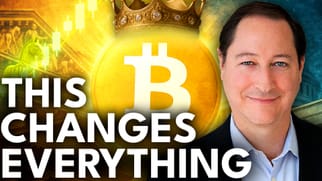
TFTC - Bitcoin OG Reveals the $100 Trillion Catalyst No One's Talking About | Ryan Gentry
Why Bitcoin may become the $100 trillion collateral base for a rebuilt global financial system.

Why Bitcoin may become the $100 trillion collateral base for a rebuilt global financial system.

A disturbing look at how a Bitcoin privacy developer was prosecuted despite regulators saying his work was legal.

Susan Kokinda argues that Trump is dismantling a global financier system by restoring American economic and political sovereignty.

Wealth only becomes a true legacy when it’s rooted in duty, family, and place, not just a big number on a balance sheet.

Bitcoin’s sharp drop looks scary, but Mežinskis shows it still sits on its long-term power curve.

Mark Mitchell outlines how a broken system is driving younger Americans to seek a new path.

Erik Cason argues that Bitcoin is the path out of fiat corruption and rising digital authoritarianism.

Block’s latest push reveals why Lightning is working, why merchant adoption matters now, and why Bitcoin’s path to becoming everyday money is finally opening up.

Why Bitcoin may become the $100 trillion collateral base for a rebuilt global financial system.

A disturbing look at how a Bitcoin privacy developer was prosecuted despite regulators saying his work was legal.

Susan Kokinda argues that Trump is dismantling a global financier system by restoring American economic and political sovereignty.

Wealth only becomes a true legacy when it’s rooted in duty, family, and place, not just a big number on a balance sheet.

Bitcoin’s sharp drop looks scary, but Mežinskis shows it still sits on its long-term power curve.

Mark Mitchell outlines how a broken system is driving younger Americans to seek a new path.

Erik Cason argues that Bitcoin is the path out of fiat corruption and rising digital authoritarianism.

Block’s latest push reveals why Lightning is working, why merchant adoption matters now, and why Bitcoin’s path to becoming everyday money is finally opening up.

A former bank regulator explains why 2026 may define Bitcoin’s future.

Block’s latest rollout quietly delivers a full Bitcoin banking stack to millions of merchants, marking its boldest step yet toward making Bitcoin everyday money.

Jordi Visser’s case for Bitcoin’s “silent IPO,” AI as the new QE, and why 2026 will be a turning point for markets, labor, and global wealth.

Andy Schoonover explains how America’s collapsing health insurance system could be revived through a Bitcoin-backed, community-driven healthcare model.

Former Senate advisor Connor Brown says Bitcoin may be the only way to defuse America’s looming debt bomb.

The Fed’s quiet return to money printing marks the end of 2% inflation targets and the dawn of a permanent, political inflation regime, one that rewards asset owners and punishes savers.
